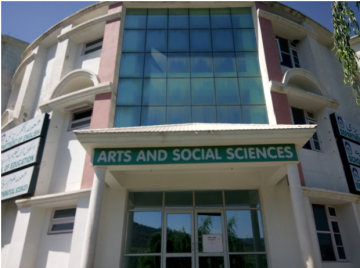|
The Department of Education, established in 2014, stands as a cornerstone of academic development, addressing the fundamental need for qualified educational professionals in an increasingly complex learning landscape. This discipline's relevance has grown exponentially as education systems worldwide undergo transformative changes in response to technological advancements, evolving pedagogical approaches, and shifting societal demands. Education as an academic discipline offers critical insights into learning processes, cognitive development, curriculum design, and assessment methodologies. It bridges theoretical knowledge with practical applications, preparing professionals who can effectively facilitate learning across diverse contexts and populations. The department's programs provide comprehensive understanding of educational psychology, sociology of education, teaching methodologies, educational technology, and inclusive practices essential components for creating effective learning environments. From a career perspective, the Department of Education opens numerous pathways for graduates. The traditional teaching profession remains a primary destination, with opportunities spanning pre-primary to higher education institutions. However, the scope extends far beyond classroom teaching.
|

Front View of Department
|
|
|
Graduates pursue careers as educational administrators, curriculum developers, educational policy analysts, instructional designers, corporate trainers, educational technology specialists, and assessment experts. The growing edtech sector particularly values professionals with strong educational foundations combined with technological expertise. The discipline's relevance is further enhanced by increasing recognition of education's role in addressing socioeconomic disparities. Graduates work in NGOs developing educational interventions for marginalized communities, design inclusive education programs for differently-abled learners, and contribute to educational policy formulation at institutional and governmental levels. The international education sector also offers opportunities for graduates to work in global educational organizations, international schools, and cross-cultural educational initiatives.
Research opportunities in education have expanded significantly, with areas like neuroscience of learning, artificial intelligence in education, and personalized learning pathways gaining prominence. Educational researchers contribute valuable insights that shape teaching practices, learning technologies, and educational policies. Additionally, the entrepreneurial landscape in education has flourished, with graduates establishing innovative educational services, alternative schools, and specialized learning centers that address specific educational needs. As education continues to evolve in response to global challenges and technological innovations, the Department of Education remains essential in preparing versatile professionals equipped to shape learning experiences that are inclusive, effective, and responsive to the demands of the 21st century.
|
|